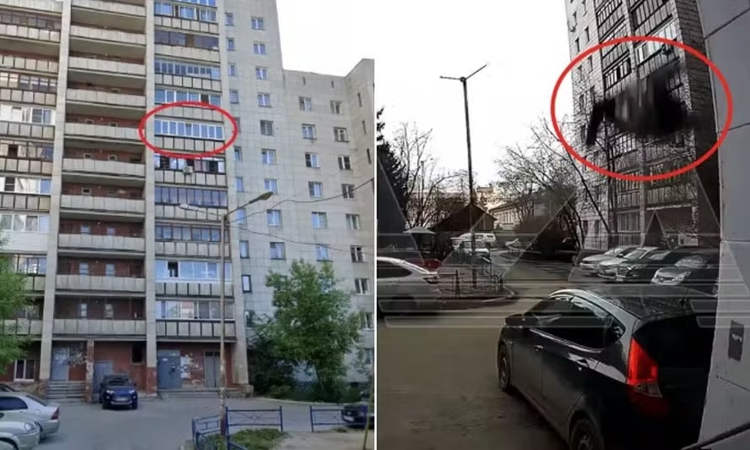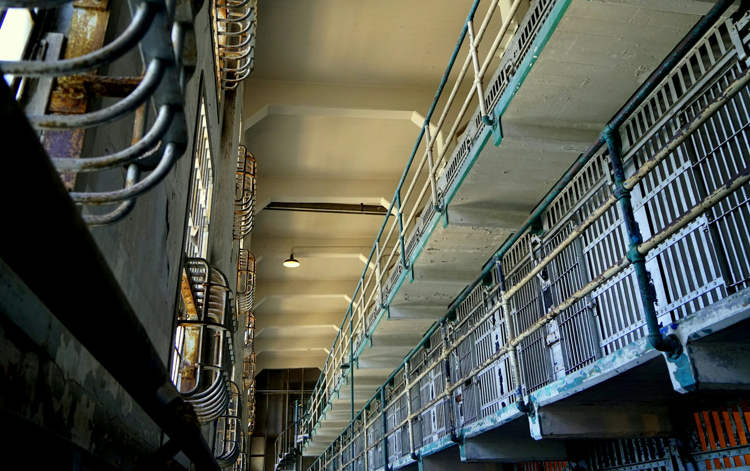It’s a little known fact that Nacho Libre, a character played by Jack Black in the 2006 eponymous movie, is actually based on a legendary real-life Mexican wrestling priest. In the film, Nacho Libre is the undercover identity adopted by Black, a monastery cook, in order become a luchador, a masked lucha libre wrestler. The idea of a priest donning a lucha libre mask is rather outlandish, but Sergio Gutierrez Benitez, a.k.a Fray Tormenta, actually did that in real life!
Born in 1945, Benitez is a Catholic priest who runs a home for orphans. As he struggled to support the kids, he decided on a rather radical means of raising money – becoming a wrestler. He designed his own red-and-yellow lucha libre mask (yellow for liveliness he must display in the ring, and red for the blood he must spill on behalf of the orphanage), and adopted the name ‘Fray Tormenta’.
Photo: YouTube caption
Benitez’s first encounter with fighting occurred over 40 years ago, when, after seven years of seminary in Spain and Italy, he returned to Mexico to take his final vows and be ordained. “Back then, he was merely Sergio Gutierrez, a seminarian with second thoughts about the priesthood,” VICE reporter Eric Nusbaum writes. “He was working as a lay minister in Veracruz, and had been assigned to pray the rosary at a parish in a run-down neighborhood by the beach.”
The parish, according to Benitez, was full of “drogadictos, prostitutas, y delincuentes.” And when he went outside, he found that they had filled the inside of his car with sand because they wanted him out of there. He could have fled, but he chose to stay back and fight. He fought them, took a beating, got some blows in, and later decided to take his final vows.
Photo: YouTube caption
Benitez’s own past was probably one of the reasons that compelled him to stay. Born in Hidalgo, as the sixteenth of seventeen children, he was a troubled kid and started using drugs at a very young age. It wasn’t until he was kicked out of a church by a priest that he himself turned to the seminary, because he felt the world needed “cool priests.”
On May 26, 1973, Benitez became a secular priest in a run down church, ordained among “prostitutes, drug addicts, and deliquents”, where he also set up an orphanage named ‘La Casa Hogar de los Cachorros de Fray Tormenta’ – as a home for 270 orphan children. Interestingly, he chose the name Fray Tormenta long before he actually started wrestling.
Photo: YouTube caption
Running an orphanage was not easy as Benitez ran into all sorts of problems. When was transferred to another church in Puebla, he moved all the boys with him. When the higher church officials asked him to give up the orphans, he left, finding a place in Texcoco, where his work was accepted. But once he settled down, money became a problem, and that’s when Fray Tormenta, the wrestling champion, came to life.
It turns out that Benitez himself was inspired by a film, El Señor Tormenta, which was about a priest who begins a secret lucha libre career to raise money for orphans in his care. In a bizarre art-inspires-life move, Benitez decided to carry out what he saw in the movie. So for an entire year, he woke up at 4.30 am and traveled to a gym in Mexico City to learn the art of lucha libre, and returned to church by 8:00 am for the daily Mass. He earned 200 pesos (about $10) for his first fight. It wasn’t much, but it was something, and he didn’t want to give up. He kept fighting and gradually built a following for himself. Soon enough, Benitez was admitted into the Consejo Mundial de Lucha Libre, the foremost promotion of the sport, and the money got a lot better.
Photo: Zocalo
The bishop in Texcoco, naturally, wasn’t impressed – he demanded that Benitez give up the sport, but the man was too stubborn to do anything of the sort. Instead, he cheekily told the bishop that he would gladly give up lucha libre if the bishop himself donated the equivalent of what he was earning in the ring. That wasn’t happening, so Benitez got to continue wrestling.
With time, Benitez became a celebrity in his own right as Fray Tormenta. His story was portrayed in the 1991 French film L’Homme au masque d’or (The Man in the Golden Mask), and Benitez earned a good chunk of money for the rights to his life story. He used it to build a brick and mortar orphanage in Hidalgo. And when Nacho Libre released in 2006, he did the same in Texcoco. He made appearances in the United States and Japan, where he developed a cult following because he resembled a 1960s Manga character named Tiger Mask.
Benitez officially retired from wrestling in 2011, after 23 years of donning the mask for charity. In his years as a wrestler, he was able to bring religion into lucha libre and vice versa. He ministered regularly to fellow luchadors, celebrated masses at the Arena Mexico, baptized the children of wrestlers, and sometimes even wears his mask in his duties as a priest, much to the delight of his congregation. But mostly he managed to keep his two lives separate.
“They are two separate things,” he told Vice. “Would I ever play around with my ministry? No, no, no.”
Sources: VICE, Amazing Mexicans










